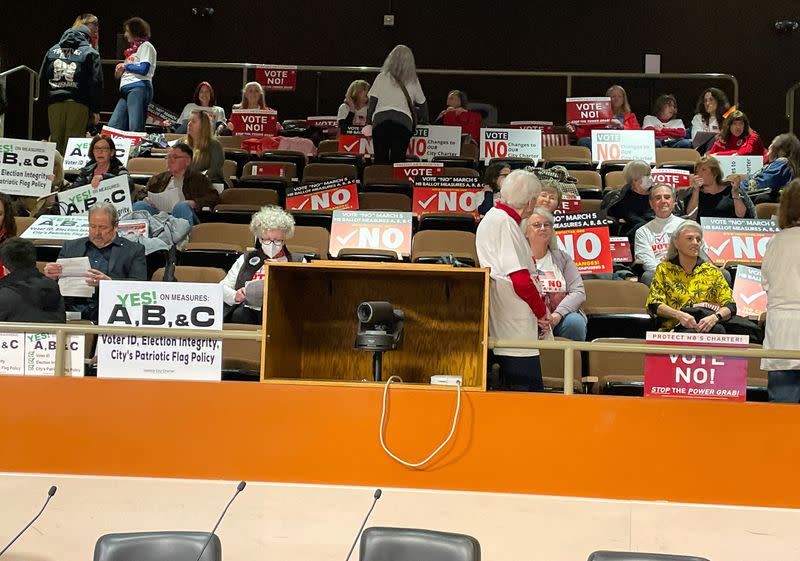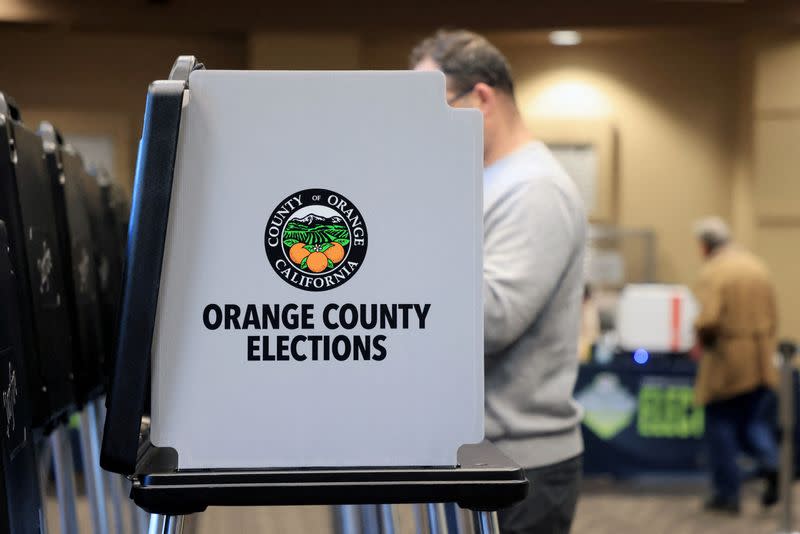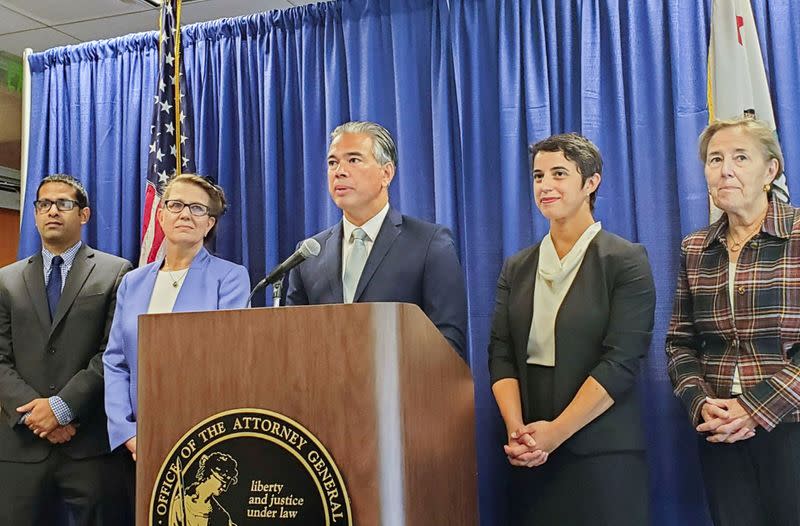California sues city of Huntington Beach over voter ID law
By Daniel Trotta
(Reuters) - The state of California sued the city of Huntington Beach over its voter identification law on Monday, saying the measure violates state law and that state election integrity is already protected by robust voter ID requirements.
Voters in Huntington Beach on March 5 approved an amendment to the city charter that could require voter identification among other steps. It passed by nearly 7 percentage points, while another amendment that effectively bans City Hall from flying the LGBTQ pride flag passed by more than 14 points.
The results endorsed part of the rightward agenda pushed by four conservatives who took over the City Council in the November 2022 elections and who have aligned city policies with the Republican Party politics of former President Donald Trump and his Make America Great Again movement.
Voter identification laws have fueled political polarization in the United States, with Republicans saying stricter measures are needed to prevent fraud. Democrats counter that fraud is extremely rare and such measures are a thinly veiled attempt to suppress the minority vote.
California's Democratic Attorney General Rob Bonta had previously warned Huntington Beach that its charter amendment conflicted with and was preempted by state law, but the council majority still placed the measure on the ballot. The lawsuit, filed in Orange County Superior Court, asks the court to block the measure from taking effect.
"Imposing unnecessary obstacles to voter participation disproportionately burdens low-income voters, voters of color, young or elderly voters, and people with disabilities," Bonta said in a statement.
Huntington Beach City Attorney Michael Gates, an ally of the conservative council majority, said the will of the voters should prevail.
"The people's decision on the March 5th ballot measures for election integrity is final. To that end, the City will vigorously uphold and defend the will of the people," Gates said in a statement.
Since taking control of the council, the conservative majority has taken on culture war issues traditionally unseen in municipal politics.
It has endorsed the border security policy of the state of Texas, restricted who can give the opening prayer before city council meetings, and stripped the council's three liberals of assignments on boards and commissions.
(Reporting by Daniel Trotta; Editing by Bill Berkrot)




